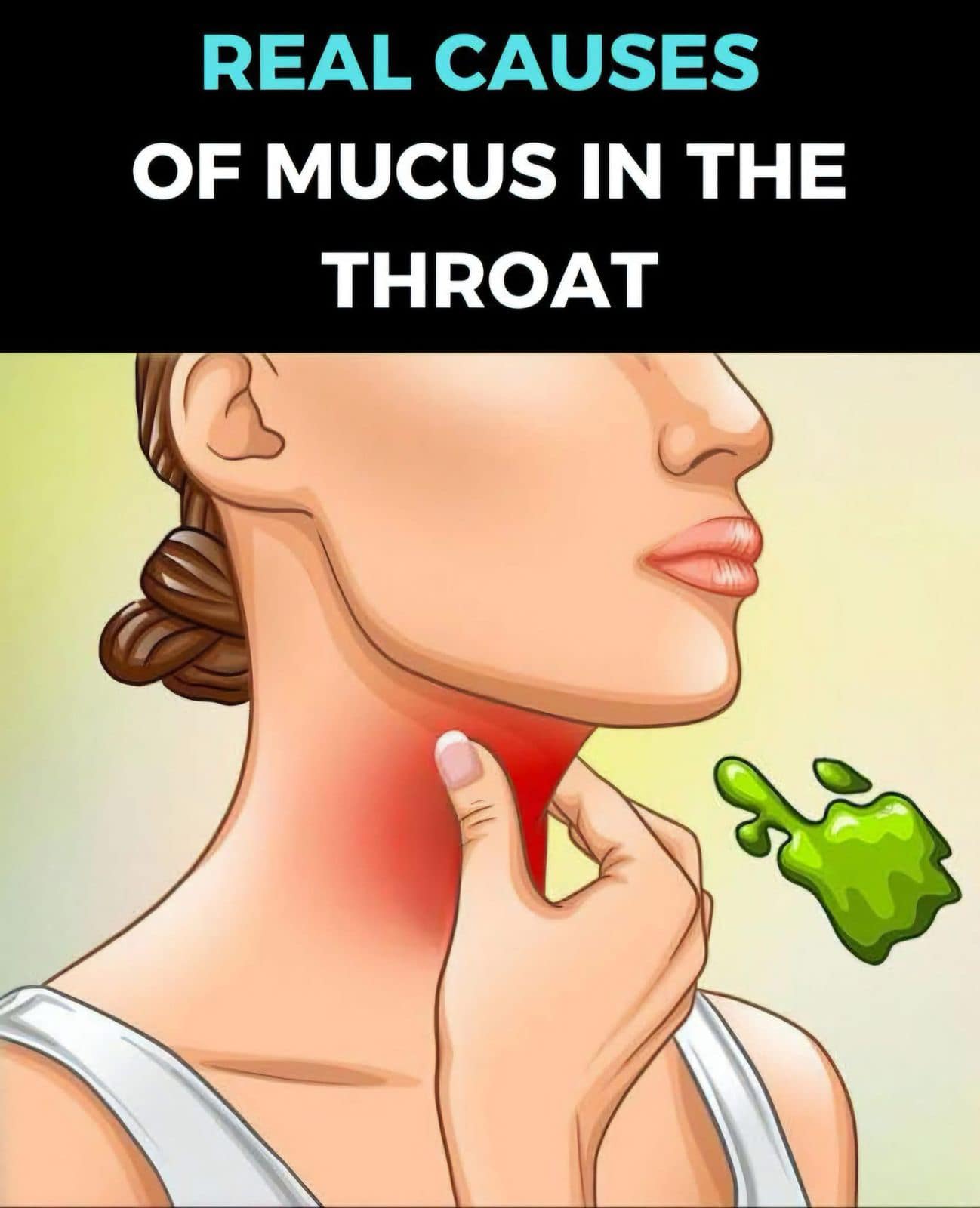Catching a cold is never fun, and one of the most frustrating symptoms that often lingers long after the sneezing and coughing fades is that thick, sticky mucus stuck in your chest and throat. It makes your breathing feel heavier, can lead to a nagging cough that just won’t quit, and makes any sort of physical activity more difficult. Even when you’re technically feeling “better,” leftover mucus can make you feel anything but. The good news is, you don’t have to sit around waiting for it to clear on its own. There are several easy and effective things you can do right at home to help loosen and eliminate phlegm and mucus so you can breathe more easily and feel like yourself again.

Mucus is actually your body’s natural defense system at work. It’s produced by the lining of your respiratory tract—your nose, throat, and lungs—to trap dust, bacteria, and other foreign particles, preventing them from entering your lungs. It also keeps your airways moist. However, when your body starts overproducing mucus—thanks to a cold, allergies, respiratory infections, smoking, or exposure to pollutants—it can become a nuisance. The excess can clog up your throat and chest, causing congestion, constant throat-clearing, a lingering cough, and that heavy feeling in your chest. Thankfully, there are plenty of natural remedies to ease the discomfort and get things moving again.
One of the simplest and most effective remedies is staying hydrated. Drinking lots of water and other fluids like herbal teas, broths, and warm soups can help thin out mucus, making it easier to expel. When mucus is thick, it clings to your throat and chest. When it’s thinner, your body can get rid of it more efficiently. Gargling with salt water is another great home remedy. Mix about half a teaspoon of salt into a warm glass of filtered or bottled water and gargle for about 30 to 60 seconds before spitting it out. Do this a few times a day. Salt water helps reduce throat irritation and loosens mucus trapped in the back of your throat.
Steam inhalation is a classic method that still works wonders. Boil a pot of water, pour it into a bowl, place a towel over your head, and lean in close to breathe in the steam. The moisture can help break up mucus and make it easier to cough up. You can also take a hot shower with the door closed to create a steam room effect. Applying a warm compress to your chest or throat is another method worth trying. Heat a towel with warm water, wring out the excess, and place it over your chest. This can relax the muscles, open your airways, and ease that heavy, congested feeling.
A honey and lemon mixture is not only soothing but also effective. Add a tablespoon of honey and a squeeze of fresh lemon juice to a warm cup of tea or water. Honey coats the throat and calms irritation, while lemon works to thin mucus. Ginger and garlic are also great additions with anti-inflammatory and mucus-clearing properties, and spicy foods like cayenne pepper can help get mucus moving as well. Using a humidifier in your room can make a big difference, especially in dry climates or during winter months. Moist air helps loosen mucus in your throat and chest, making it easier to breathe. Just be sure to clean your humidifier regularly to avoid mold or bacterial buildup.
Nasal irrigation, such as using a neti pot with a saline solution, can help flush out mucus from your nasal passages. This reduces postnasal drip and eases pressure in your sinuses and throat. Always use sterile or distilled water and clean the neti pot after each use. Lastly, be sure to avoid irritants. Stay away from cigarette smoke, heavy perfumes, chemical fumes, and polluted air, as all of these can increase mucus production and worsen congestion.
There are a few habits you’ll want to avoid while trying to clear mucus. Smoking or being exposed to secondhand smoke is one of the worst things for your respiratory system and will make mucus worse. Limit dairy intake, as it may make mucus thicker and harder to get rid of for some people. Watch your sugar consumption, since sugary foods and drinks can increase inflammation and mucus production. Be cautious with nasal decongestants—using them for too long without a doctor’s guidance can lead to rebound congestion. And finally, don’t suppress your cough too much. Coughing is your body’s way of clearing mucus from your lungs and airways, so let it do its job unless a doctor advises otherwise.
If you try these home remedies and your symptoms persist or get worse, don’t hesitate to contact a healthcare professional for further evaluation. But for most people, using these natural solutions can make a noticeable difference, helping to break up mucus and restore clear, easy breathing—and maybe even your peace of mind.





